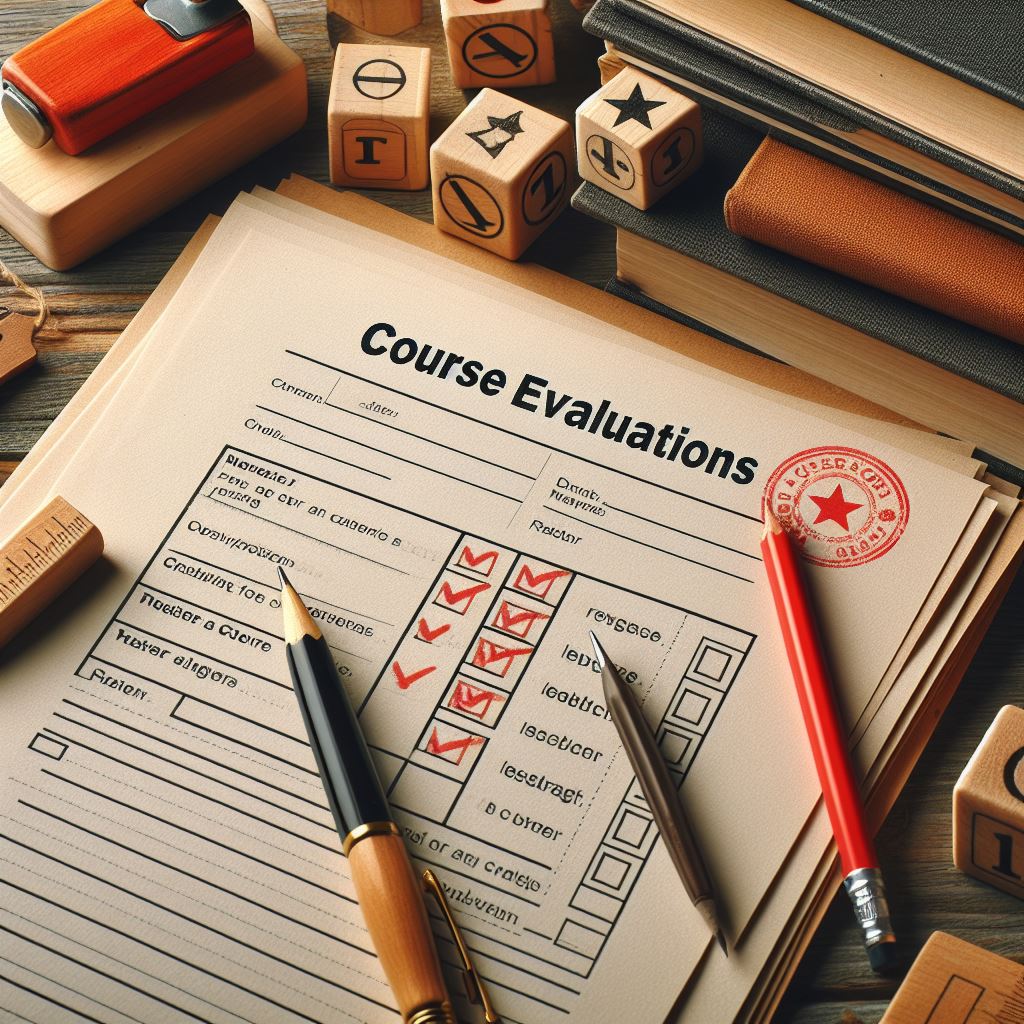Yes, in most cases, professors can access the feedback provided through course evaluations. However, the timing of when they see the evaluations may vary, and some institutions may have policies in place to ensure transparency while also managing the potential emotional impact on educators.
In the dynamic world of academia, course evaluations have become a staple, providing valuable insights into the student learning experience. But as students candidly share their thoughts, a common question arises: Do professors see course evaluations? Let’s discuss this academic enigma.
Defining Course Evaluations
Course evaluations are a crucial component of the educational landscape, offering students a platform to express their opinions and experiences regarding a specific course. These evaluations are not mere paperwork; they play a pivotal role in shaping the educational landscape, influencing future courses, and aiding in the professional development of educators.
The Purpose of Course Evaluations
Feedback for Improvement
One primary purpose of these evaluations is to provide constructive feedback, allowing educators to identify areas of improvement and refine their teaching methods.
Student Experience Enhancement
Beyond faculty development, evaluations contribute to enhancing the overall student experience, ensuring that educational institutions meet the evolving needs of their diverse student body.
Faculty Development
Course evaluations are instrumental in fostering continuous growth among professors, encouraging them to adapt their teaching styles to accommodate the dynamic learning preferences of students.
Who Conducts Course Evaluations?

Course evaluations are typically administered by the institution, employing various methods such as online surveys or paper forms. To encourage honest feedback, institutions often ensure the anonymity of respondents. Transparency in the evaluation process is key to building trust among students.
How Do Professors Generally React to Course Evaluations?
Positive Feedback
Professors often welcome positive feedback, finding affirmation in their successful teaching methods and approaches that resonate with students.
Constructive Criticism
Constructive criticism, though challenging to receive, is crucial for growth. Many educators view it as an opportunity to adapt and improve their teaching strategies.
Handling Negative Comments
Negative comments, when constructive, can lead to positive changes. However, professors must navigate the emotional impact of criticism and use it as a catalyst for improvement.
Challenges and Controversies Surrounding Course Evaluations
Bias and Fairness Concerns
Course evaluations are not immune to biases, and concerns about fairness arise, especially when factors unrelated to teaching influence students’ perceptions.
Validity and Reliability Issues
Questions regarding the accuracy, reliability, and validity of course evaluations persist, prompting institutions to continually reassess and refine their evaluation methods.
how long after va evaluation to get a rating?
The duration it takes to receive a rating after a VA (Department of Veterans Affairs) evaluation can vary. Generally, the process involves several steps, including the evaluation itself, the submission of the evaluation report, and the final decision on the disability rating.
After a VA evaluation, it typically takes several weeks to a few months for the entire process to be completed. The exact timeline can depend on factors such as the complexity of the case, the volume of evaluations being processed, and any additional information that may be required.
It’s important for individuals undergoing VA evaluations to stay informed about the status of their cases. They can check the status online through the VA’s official website or contact the VA directly for updates.
Keep in mind that while waiting for the rating, the VA is working to ensure a thorough and accurate assessment of the individual’s disability status, and this may take some time.
Mostly Asked Questions about Do Professors See Course Evaluations
Are course evaluations anonymous?
Yes, in many institutions, course evaluations are designed to be anonymous. This anonymity is often emphasized to encourage students to provide honest feedback without fear of reprisal.
Who reads student evaluations?
Typically, designated individuals within the institution, such as department heads, administrators, and sometimes the professors themselves, have access to student evaluations. The goal is to use the feedback for the improvement of courses and teaching methods.
Are campus lab course evaluations anonymous?
The anonymity of course evaluations in campus labs depends on the policies of the specific institution. In general, efforts are made to maintain anonymity to ensure students feel comfortable expressing their opinions honestly.
Are UCLA course evaluations anonymous?
The anonymity of course evaluations at UCLA, like at many institutions, is usually maintained. However, it’s essential to refer to the specific policies of UCLA regarding the handling and disclosure of course evaluations for precise information.
Are course evaluations mandatory?
The requirement for students to participate in course evaluations can vary. While some institutions make them mandatory, others may leave it as an optional process for students. Mandatory participation is often encouraged to gather comprehensive feedback.
Final Thoughts
Course evaluations hold significant weight in academia, offering the dual benefit of providing valuable insights for professors and enhancing the overall student experience. The mystery of whether professors see course evaluations is unveiled, emphasizing the importance of a transparent and well-defined evaluation process.

